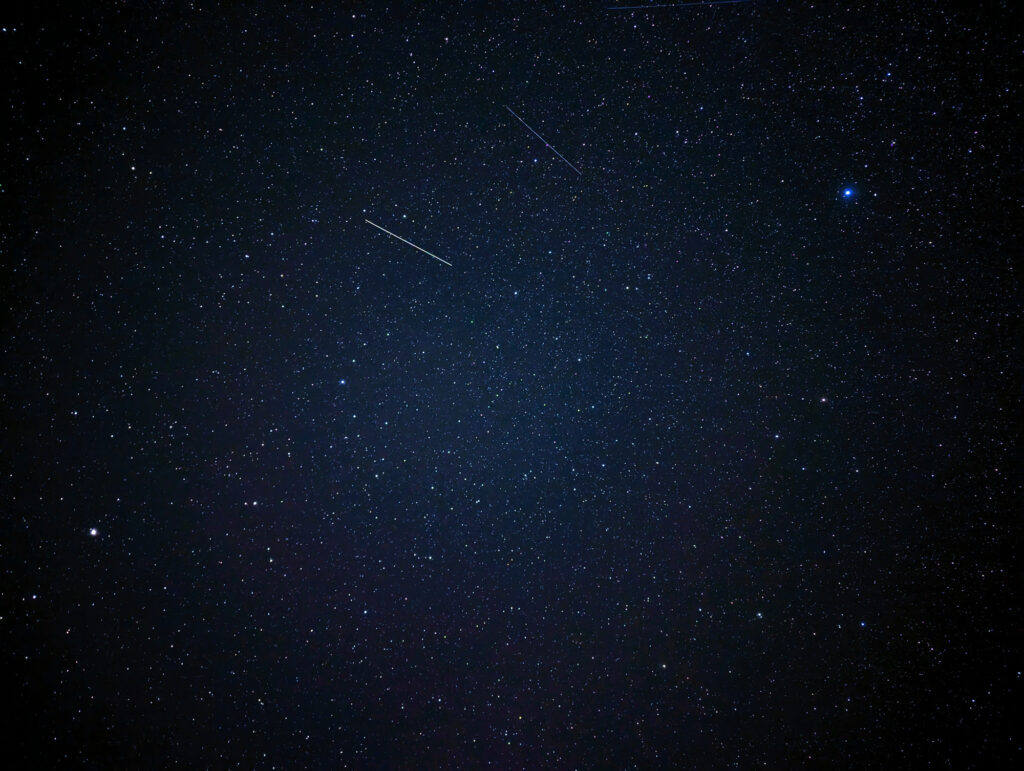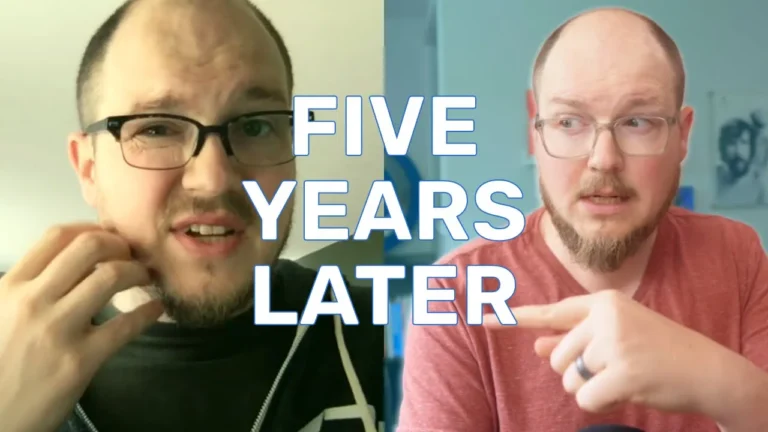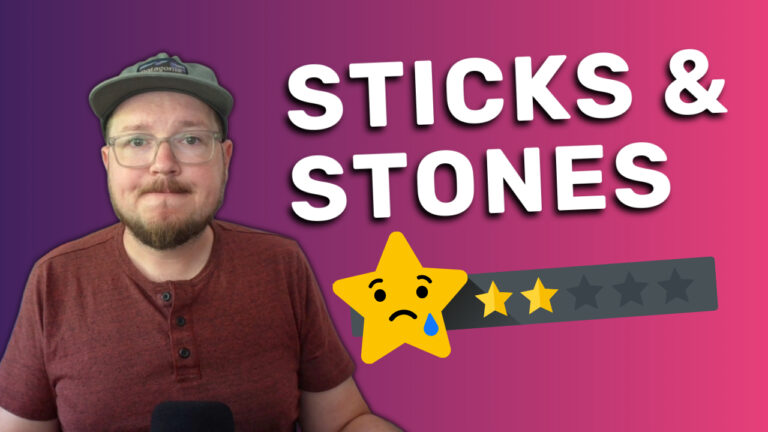Let me tell you a story.
Recently, my family and I traveled to Cherry Springs State Park in Pennsylvania – one of the darkest places on the East Coast. It’s a big stargazing destination.
Back home in the suburbs of Philly, I might see a couple specks of light in the night sky – and usually, it’s a commercial jet. Under the best conditions, I can spot a few dozen stars, tops.
But out there in Cherry Springs, with no street lamps, no digital billboards, no headlights, no phones or flashlights – we could see thousands, maybe even hundreds of thousands of stars. It was truly incredible, and trust me, these photos don’t do it justice.

While we were up there, we also checked out Watkins Glen (beautiful waterfalls, looks like Rivendell) and the Grand Canyon of Pennsylvania (not as impressive as the one in Arizona, but a lot more hike-able). It was a great time.
This experience got me thinking: what else are we failing to see? What beautiful things, what creative solutions, what innovative ideas are getting washed out by the busyness and distractions of our daily lives?
What are we missing?
The same stars I saw at Cherry Springs are still above my head right now, but only a fraction of them show up against the “light pollution” of my surroundings. And it’s not just the literal lights – it’s all the noise and clutter of our modern lives that keep us too busy to even stop to look up in the first place.
Now, don’t get me wrong – I don’t consider all artificial light to be “pollution.” And most of the time, I’ll pick the comforts and conveniences of civilization over being alone in the middle of nowhere. Living in community and having access to information and “flashy distractions” can be inspiring in their own right.
But every now and then, we need to practice turning out the lights – taking a break and giving ourselves time and space to let our eyes adjust to see new things and remember old priorities.
A few tips
Here are a few practical tips for turning out the lights in your own life, even if you can’t get away to a place like Cherry Springs:
Make time to read.
Bonus points if it’s fiction. There’s tons of great books with practical, business information. But go live in a fantasy world for a little bit. I’ve found it does a better job at connecting you with the real world than non-fiction ever could. Bonus points, read out loud – especially if you have kids. That opens up whole bag of benefits – definitely for your children, but also for you. It creates a really special opportunity to connect with your family, but if you need something more practical – it’s great practice for public speaking and presentation. And it’s fun. Bonus bonus bonus points: Do the voices.
Turn off the TV.
Sometimes, finding something to watch is more work and stress than it’s worth. I used to LOVE TV and movies. But TV can become this thing that we turn on out of habit. And sometimes keeping up with a series can turn into a stressful obligation. If you feel like need to watch TV, but don’t actually want to – that’s a good sign you should take a little break. Read instead.
Go for a walk.
Bonus points: WITHOUT listening to a podcast. Normally I have me ear buds in, but when I do, I cut myself off from everything around me and I go into my own head. Sometimes that’s good. But sometimes it’s better to take a break from information input. Or even music. Dial down the stimulation, and make space for you to pay more attention to what’s around you. Take time to pray. Or quietly process the thoughts and ideas that are already in your head without pumping it full of new information.
Content Overload
There is so much content available to us. So much to chew on. Or rather to choke on. Former Google CEO Eric Schmidt once estimated that we produce more data in 48 hours than we produced from the dawn of civilization through 2003. That statistic was highly debatable when he first dropped it back in 2010. But being as 14 years ago we didn’t have 4G let along 5G, user-generated content was a newer topic if your phone did shoot decent video, you probably didn’t do much with it, Instagram JUST launched, YouTube had 200 Million active users, today it has over 2 BILLION. Sticking with YouTube, in 2010, 35 hours of video were being uploaded every minute. A 2020 statistic, put that closer to 500 hours per minute. Let’s add the 16,000 videos uploaded to TikTok every minute, all the content on other platforms, podcasts, the new mega-glut of AI generated content.
Whether or not Eric Schmidt got the math right in 2010, there is no doubt today we are being bombarded by waaay more information than we are able to healthily process. It’s making us miserable. Our brain uses energy just like everything else in our body. And out body has limits. We need to rest. Regularly. Or else we’re going to get sick, stressed, depressed, and burnt out.
Reap the Benefits Now
One of my favorite podcasts is Smart Passive Income with Pat Flynn, and every episode the announcer says, “Where it’s all about working hard now so you can sit back and reap the benefits later.” Which, yes, I don’t disagree with that sentiment, but some people never define when “later” is. Is it this weekend, or is it your 70s? Hustle hustle hustle, I’ll sleep when I’m dead is an all too common mentality among entrepreneurial circles. But that needs checks and balances or else we’re going to get sick, stressed, depressed, and burnt out. And burn outs don’t hustle very well.
Get away. Change up the pace. Turn out the lights. Put down your phone. Just be quiet. Let yourself get bored. Let your brain rest and recover, and actually have time to digest all the information you keep shoving down your mind throat.
And don’t just isolate yourself, lean into your family and friends and other things that bring you joy.
Don’t sacrifice living your life well now for the sake of chasing some imaginary better version of it that you might never actually get to see.


